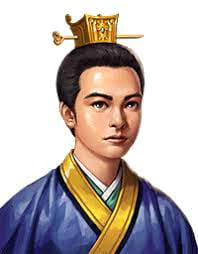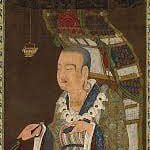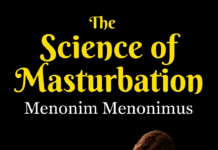Discover the life and legacy of Liu Xie (465–521 CE), a Chinese writer and philosopher from the Southern and Northern Dynasties period. Best known for his literary masterpiece ‘Wenxin Diaolong’ (The Literary Mind and the Carving of Dragons), Liu Xie’s work remains a cornerstone of ancient Chinese literary theory and criticism.
Liu Xie
Liu Xie (465–521 CE), also known as Liu Xie of Southern Liang, was a Chinese writer and philosopher who lived during the Southern and Northern dynasties period in Chinese history. He is best known for his work “Wenxin Diaolong” or “The Literary Mind and the Carving of Dragons,” which is considered one of the most important works of literary theory and criticism in ancient China.
Liu Xie was born in the Southern Liang state, which was located in present-day Sichuan Province. Little is known about his early life and education, but it is believed that he was well-educated and well-versed in the classics. He was also a talented writer and was known for his refined and elegant style of writing.
Xie’s “Wenxin Diaolong” is a comprehensive treatise on literary theory and criticism, and is considered one of the most important works in this field in ancient China. The work is comprised of six chapters and covers topics such as the nature of literature, the techniques of writing, the principles of literary criticism, and the qualities of good writing. Liu Xie believed that literature should aim to convey the writer’s emotions and experiences, and that good writing should be characterized by its ability to evoke emotions in the reader.
In addition to his work on literary theory and criticism, Liu Xie was also known for his expertise in the field of poetry. He was particularly interested in the works of the great poets of the past, and his writing reflects his deep appreciation for the art of poetry. Liu Xie believed that poetry should aim to express the poet’s emotions and experiences, and that good poetry should be characterized by its ability to evoke emotions in the reader.
Despite his achievements as a writer and philosopher, Liu Xie lived during a time of political turmoil and instability in China. The Southern and Northern dynasties period was characterized by frequent wars and political upheavals, and Liu Xie’s life was not immune to these challenges. He was forced to move several times during his life due to political turmoil, and at one point was even imprisoned for his political views.
Despite these difficulties, Liu Xie continued to write and produce important works of literature and philosophy. He died in 521 CE, but his legacy lived on through his works, which continue to be widely read and studied to this day.
In conclusion, Liu Xie was a talented and influential writer and philosopher who lived during a time of political turmoil in ancient China. He is best known for his work “Wenxin Diaolong,” which is considered one of the most important works of literary theory and criticism in ancient China and reflects his deep appreciation for the art of literature and poetry. Despite the challenges he faced in his life, Liu Xie remains an important figure in the history of Chinese literature and philosophy, and his works continue to inspire and influence writers and thinkers to this day. 0 0 0.
Liu Xie: Comprehensive Biography
Liu Xie (465–521 CE), also known as Liu Xie of Southern Liang, was a distinguished Chinese writer, literary theorist, and philosopher who lived during the Southern and Northern Dynasties period. He is most renowned for his seminal work ‘Wenxin Diaolong’ (文心雕龙), translated as ‘The Literary Mind and the Carving of Dragons’, a foundational text in the field of Chinese literary theory and criticism. His work remains one of the most important and comprehensive studies of literature and rhetoric in Chinese history, deeply influencing subsequent generations of scholars and writers.
Historical Context
Liu Xie was born in 465 CE, during a turbulent period in Chinese history known as the era of the ‘Southern and Northern Dynasties’ (420–589 CE). China was divided into rival kingdoms during this time, with the Southern Dynasties ruling over the region south of the Yangtze River and the Northern Dynasties controlling the north. These centuries were marked by constant warfare, political fragmentation, and social instability. Despite this, the period also saw a blossoming of culture, philosophy, and literature, as scholars sought to preserve and advance intellectual traditions amid the chaos.
Liu Xie’s life spanned the reigns of multiple emperors in the Southern Liang dynasty, the last of the Southern Dynasties. He grew up in a scholarly environment, steeped in Confucian classics, Buddhist teachings, and the growing body of Chinese literature. This intellectual atmosphere played a critical role in shaping his thoughts and later literary contributions.
Early Life and Education
Liu Xie was born into a modest family, but from a young age, he demonstrated a keen interest in learning. He devoted himself to the study of Confucianism, Daoism, and Buddhism, three of the primary philosophical currents in Chinese thought. These diverse influences would later come to shape his literary theories. His early education laid a strong foundation for his intellectual pursuits, as he developed a broad understanding of classical texts, literary traditions, and philosophical doctrines.
In his youth, Liu Xie became a Buddhist monk, joining the Monastery of Dinglin Temple near Jiankang (modern-day Nanjing). This experience had a profound impact on his worldview and writing style. His study of Buddhist scriptures introduced him to the importance of structure, organization, and clarity in literary expression, principles that would later inform his work ‘Wenxin Diaolong’.
The Creation of ‘Wenxin Diaolong’
Liu Xie’s most significant accomplishment, ‘Wenxin Diaolong’, was the result of over 20 years of dedicated work. Written during the final years of his life, the text consists of 50 chapters and covers a wide range of topics related to literature, including rhetoric, literary genres, style, form, and the moral purpose of writing.
The title of the work, ‘Wenxin Diaolong’, metaphorically suggests that literature is like a dragon—a mythical creature that must be carefully carved and shaped, emphasizing the importance of craftsmanship in writing. Liu Xie argued that writing was not merely an act of communication, but a refined art that required both talent and rigorous cultivation.
In ‘Wenxin Diaolong’, Liu Xie articulated a comprehensive theory of literature that blended Confucian, Daoist, and Buddhist ideals. He stressed the harmony between the mind (xin 心) and literary expression (wen 文), suggesting that true literary creation must reflect both inner morality and aesthetic beauty. For Liu Xie, the ultimate purpose of literature was not only to entertain or convey information but to promote moral integrity and societal harmony. His work established a bridge between the ethical values of Confucianism and the artistic emphasis of Daoism, while also integrating Buddhist principles of detachment and clarity.
Major Themes in ‘Wenxin Diaolong’
The Nature of Literature: Liu Xie proposed that literature is an expression of the human spirit, shaped by both emotional and intellectual forces. He believed that great writing should reflect an author’s inner virtue and wisdom.
Literary Genres: Liu Xie’s work categorizes various literary genres, including poetry, prose, historical writing, and philosophical discourse. He examined each genre’s unique characteristics and offered guidance on how to excel in them.
Rhetoric and Style: One of Liu Xie’s primary concerns was the refinement of language. He emphasized the importance of structure, clarity, and elegance in writing, encouraging writers to choose words carefully to achieve the desired effect.
Inspiration and Technique: Liu Xie argued that while inspiration plays a key role in literary creation, it must be tempered by technique and discipline. He believed that writing, like any art form, required continuous effort and self-cultivation.
The Role of the Writer: Liu Xie saw the writer as both a creator and a moral guide for society. He held that literature should serve a higher purpose—educating readers, promoting ethical behavior, and contributing to social harmony.
Liu Xie’s Influence on Chinese Literary Theory
‘Wenxin Diaolong’ is considered one of the most important and sophisticated works of literary criticism in ancient China. It was unique in its systematic approach, integrating both aesthetic and ethical principles to assess literature. The work provided a blueprint for understanding the structure and meaning of literary works, and its influence can be seen in Chinese literary criticism for centuries after Liu Xie’s time.
Liu Xie’s ideas laid the foundation for later scholars and critics, who expanded on his theories and applied them to evolving literary forms. His emphasis on the moral purpose of literature had a lasting impact on Chinese intellectuals, particularly those within the Confucian tradition, who continued to see literature as a tool for promoting societal values.
Philosophical Contributions
In addition to his literary criticism, Liu Xie’s work reflected his deep philosophical insights. His Buddhist training is evident in his focus on detachment, balance, and harmony in writing. The idea that great literature should be an extension of one’s moral and spiritual life is a recurring theme in his work.
Liu Xie’s philosophy was grounded in the belief that literature is a mirror of both the individual soul and the broader cosmos. This notion resonates with the Confucian concept of ‘ren’ (仁), or humanity, as well as Daoist ideas of natural harmony. He encouraged writers to draw inspiration from nature and the world around them, but also to refine their thoughts through disciplined study and reflection.
Legacy
Liu Xie passed away in 521 CE, but his work and ideas have endured for more than a millennium. ‘Wenxin Diaolong’ has been studied, referenced, and revered by scholars throughout Chinese history. It is regarded as a classic of Chinese literary theory, providing timeless insights into the nature of writing, the role of the writer, and the intersection of literature and morality.
Though Liu Xie himself did not achieve great political or material success during his lifetime, his intellectual contributions have ensured his lasting place in the annals of Chinese cultural history. Today, *Wenxin Diaolong* remains a crucial text for understanding the development of Chinese literature and offers universal insights into the art and purpose of writing.
In summary, Liu Xie was not only a literary critic but also a philosopher who saw writing as a means of self-cultivation and moral betterment. His work, ‘Wenxin Diaolong’, continues to be an invaluable resource for those seeking to understand both the technical and ethical dimensions of literary creation in Chinese tradition.
Brief Data on Liu Xie
- Full Name: Liu Xie (刘勰)
- Born: 465 CE, Southern Liang, China
- Died: 521 CE
- Era: Southern and Northern Dynasties (420–589 CE)
- Occupation: Writer, Philosopher, Literary Critic
- Key Contributions: Author of *Wenxin Diaolong* (The Literary Mind and the Carving of Dragons), one of the most influential works of literary theory and criticism in ancient China.
- Philosophical Influences: Confucianism, Daoism, Buddhism
- Legacy: Pioneer of Chinese literary theory; his work continues to influence literary criticism and philosophy.
FAQs About Liu Xie
Q1: What is Liu Xie best known for?
A1: Liu Xie is best known for his work ‘Wenxin Diaolong’ (The Literary Mind and the Carving of Dragons), a comprehensive treatise on literary theory and criticism in ancient China.
Q2: What is ‘Wenxin Diaolong’ about?
A2: ‘Wenxin Diaolong’ explores the nature of literature, the different genres of writing, rhetoric, style, and the moral purpose of literature. It combines Confucian, Daoist, and Buddhist ideas, emphasizing both the artistic and ethical aspects of writing.
Q3: How did Liu Xie’s philosophical background influence his writing?
A3: Liu Xie’s philosophical background, which blended Confucian, Daoist, and Buddhist thought, influenced his belief that literature should reflect both inner virtue and aesthetic beauty. He saw writing as a moral and spiritual pursuit, not just an artistic one.
Q4: Why is ‘Wenxin Diaolong’ important in Chinese literary history?
A4: ”Wenxin Diaolong’ is considered one of the most sophisticated and systematic works on literary criticism in Chinese history. It laid the foundation for understanding the purpose, structure, and artistry of literature, deeply influencing Chinese literary thought.
Q5: What legacy did Liu Xie leave in Chinese literature?
A5: Liu Xie’s ‘Wenxin Diaolong’ became a classic text, shaping Chinese literary criticism for centuries. His ideas on the ethical and artistic roles of literature have had a lasting impact on Chinese intellectuals and writers throughout history.
N. B. This article originally belongs to the book, ‘Brief Biographies of Ancient Thinkers and Writers‘ by Menonim Menonimus.
Books of Biography by M. Menonimus:
- The World Writers-Brief Biographies
- Introduction to World Writers
- Introduction to World Personalities
- Love of Reputed Persons ..
Additional Searches:











